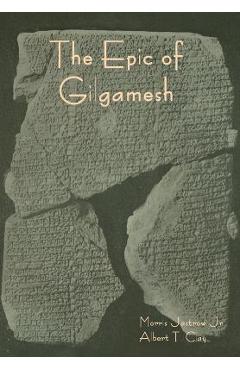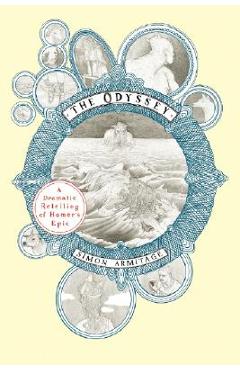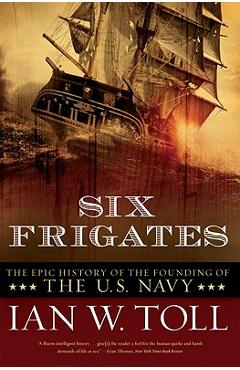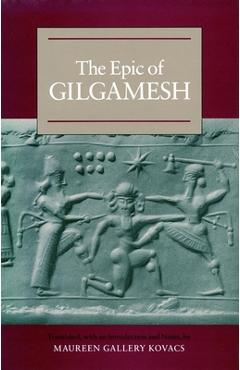The Epic of Gilgamesh - Morris Jastrow

Detalii The Epic of Gilgamesh -
libris.ro
191.46 Lei
239.32 Lei
Poetry
Morris Jastrow
The Epic of Gilgamesh - - Disponibil la libris.ro
Pe YEO găsești The Epic of Gilgamesh - de la Morris Jastrow, în categoria Poetry.
Indiferent de nevoile tale, The Epic of Gilgamesh - Morris Jastrow din categoria Poetry îți poate aduce un echilibru perfect între calitate și preț, cu avantaje practice și moderne.
Preț: 191.46 Lei
Caracteristicile produsului The Epic of Gilgamesh -
Comandă The Epic of Gilgamesh - Online, Simplu și Rapid
Prin intermediul platformei YEO, poți comanda The Epic of Gilgamesh - de la libris.ro rapid și în siguranță. Bucură-te de o experiență de cumpărături online optimizată și descoperă cele mai bune oferte actualizate constant.
Descriere magazin:
The Epic of Gilgamesh is an epic poem from ancient Mesopotamia, regarded as the earliest surviving notable literature and the second oldest religious text, after the Pyramid Texts. The literary history of Gilgamesh begins with five Sumerian poems about Bilgamesh (Sumerian for Gilgamesh), king of Uruk, dating from the Third Dynasty of Ur (c. 2100 BC). These independent stories were later used as source material for a combined epic in Akkadian. The first surviving version of this combined epic, known as the Old Babylonian version, dates back to the 18th century BC and is titled after its incipit, Shūtur eli sharrī (Surpassing All Other Kings). Only a few tablets of it have survived. The later Standard Babylonian version compiled by Sîn-lēqi-unninni dates from the 13th to the 10th centuries BC and bears the incipit Sha naqba īmuru (He who Saw the Abyss, in unmetaphoric terms: He who Sees the Unknown). Approximately two-thirds of this longer, twelve-tablet version have been recovered. Some of the best copies were discovered in the library ruins of the 7th-century BC Assyrian king Ashurbanipal. The first half of the story discusses Gilgamesh, king of Uruk, and Enkidu, a wild man created by the gods to stop Gilgamesh from oppressing the people of Uruk. After Enkidu becomes civilized through sexual initiation with Shamhat, he travels to Uruk, where he challenges Gilgamesh to a test of strength. Gilgamesh wins the contest; nonetheless, the two become friends. Together, they make a six-day journey to the legendary Cedar Forest, where they plan to slay the Guardian, Humbaba the Terrible, and cut down the sacred Cedar. The goddess Ishtar sends the Bull of Heaven to punish Gilgamesh for spurning her advances. Gilgamesh and Enkidu kill the Bull of Heaven after which the gods decide to sentence Enkidu to death and kill him. In the second half of the epic, distress over Enkidu\'s death causes Gilgamesh to undertake a long and perilous journey to discover the secret of eternal life. He eventually learns that Life, which you look for, you will never find. For when the gods created man, they let death be his share, and life withheld in their own hands. Nevertheless, because of his great building projects, his account of Siduri\'s advice, and what the immortal man Utnapishtim told him about the Great Flood, Gilgamesh\'s fame survived well after his death, with expanding interest in the his story. It has been translated into many languages and is featured in several

Produse asemănătoare

The Evolution of Charles Darwin: The Epic Voyage of the Beagle That Forever Changed Our View of Life on Earth - Diana Preston
![]() libris.ro
libris.ro
Actualizat in 28/10/2025
111.6 Lei

Fantastic Four Epic Collection: The Coming of Galactus - Jack Kirby
![]() libris.ro
libris.ro
Actualizat in 28/10/2025
232.5 Lei

The Odyssey: A Dramatic Retelling of Homer\'s Epic - Simon Armitage
![]() libris.ro
libris.ro
Actualizat in 28/10/2025
83.42 Lei

Six Frigates: The Epic History of the Founding of the U.S. Navy - Ian W. Toll
![]() libris.ro
libris.ro
Actualizat in 28/10/2025
105.74 Lei

